Soleimani 'Architect Of Peace' With Saudi Arabia, Says Spokesman

Iran’s foreign ministry spokesman Nasser Kanaani claimed Thursday that IRGC’s Qassem Soleimani was the architect of restoring ties with Saudi Arabia.

Iran’s foreign ministry spokesman Nasser Kanaani claimed Thursday that IRGC’s Qassem Soleimani was the architect of restoring ties with Saudi Arabia.
Posting a tweet, Kanaani did not explain Soleimani’s role in an agreement last week to restore diplomatic relations between Tehran and Riyadh. Soleimani was killed more than three years ago in an air strike in Baghdad, ordered by former US President Donald Trump.
“General Soleimani not only was a hero in fighting terrorism and enhancing security in the region, he was also a general and an architect of peace, reconciliation and brotherhood among Muslim nations and countries,” Kanaani wrote in his tweet.
One day after the Tehran-Riyadh agreement was announced in Beijing on March 10, some media controlled by Iranian hardliners began saying that that the deal was the result of Iran’s military power in the region, implying that Saudi Arabia had no choice but to mend fences with the Islamic Republic.
Kanaani's tweet can be interpreted as a reference to Soleimani's military role in destabilizing the region.
As commander of IRGC's extraterritorial Quds Force, Soleimani was in fact Tehran’s military and intelligence operative in the Middle East and the architect of creating militant proxy forces in Iraq, Yemen, Syria, Afghanistan and reinforcing the Lebanese Hezbollah.
A devastating missile and drone attack on Saudi oil installations in September 2019 was ascribed to Iran or its Yemeni allies, the Houthis. It was said at the time that Soleimani was one of the main architects of the attack that eluded Saudi and American radars and air defenses.
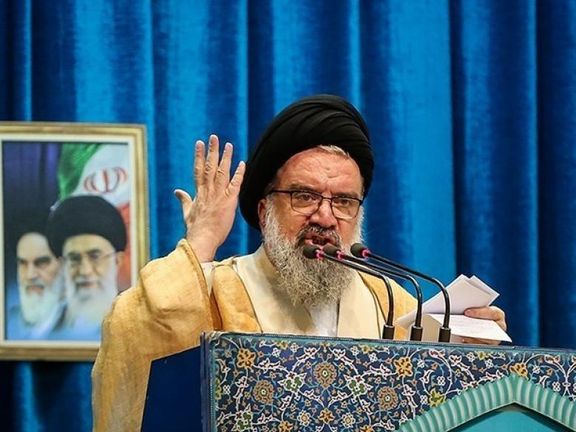
Firebrand Iranian cleric Ahmad Khatami claims the massive rise of prices in Iran is the result of a plot hatched by the United States.
The hardliner cleric and Friday prayer Imam in Tehran said that high prices are the result of an "economic war” waged by the US, referring to the heavy sanctions Iran is currently living under.
Although economic sanctions imposed by Washington have a major impact on Iran's economy, many among local media and politicians also blame government mismanagement and the centrally controlled economy plagued by corruption.
“I clearly announce that this high level of inflation is a conspiracy and economic war staged by the US, so the authorities should put in more effort to deal with the unbridled prices,” he said.
Khatami went as far as making a strange claim that “American think tanks have organized 200 conspiracies to overthrow the Islamic Republic.” Accusing American research outfits of conspiring against the regime has been a recent theme in sermons by hardliner clerics.
Iran has been struggling with above-40-percent inflation since 2019 when the United States imposed sanctions.
Last May the government eliminated an annual food import subsidy of at least $10 billion, which immediately led to steep price increases. This was followed by a fall in the value of the national currency.
Food prices continue to climb as the national currency declined by 50 percent in the past six months. According to the Statistical Center of Iran (SCI), in some months, food and beverage inflation hit 87 percent.
The ongoing Woman Life Freedom protests and the collapse of the JCPOA talks, have also worsened the country’s economy to levels not seen in recent history.
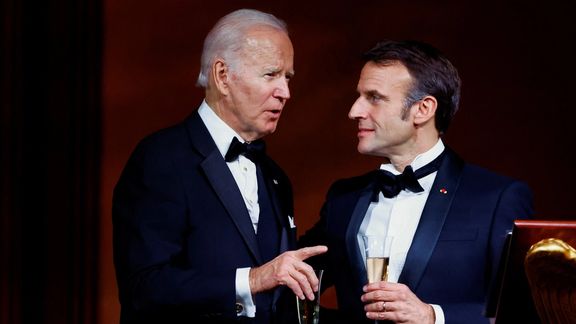
US State Department’s outgoing spokesperson Ned Price says the major success of the administration regarding Iran has been forging unity with allies.
Asked by Iran International’s correspondent how he judges US policy on Iran after no diplomatic successes in two years, Price argued that Iran poses “a number of challenges, and we’ve always been clear-eyed that those challenges are difficult – they are complex; they cross into many different realms.”
Price claimed, “when you take a look at each one of those realms, you have seen us work with allies and partners in ways that meaningfully protect our interests and promote our interests.”
However, since President Joe Biden signaled his readiness in 2020 to revive the Obama-era nuclear deal with Iran, known as the JCPOA, the Islamic Republic has dangerously increased the level of its uranium enrichment, first to 20 and then to 60-percent purity starting in early 2021.
It also increased oil shipments to China despite US sanctions and continued its meddling in the Middle East. Tehran has also refused to fully cooperate with the International Atomic Energy Agency (IAEA) and in fact has substantially reduced the UN watchdog’s monitoring capacity at its nuclear installations.
The Biden administration also agreed to hold indirect talks with Iran to revive the JCPOA, with Russia playing a major role until its attack on Ukraine last year. Talks lasting 18 months came to a deadlock in September 2022, as Iran stonewalled while it was shipping kamikaze drones to Russia.
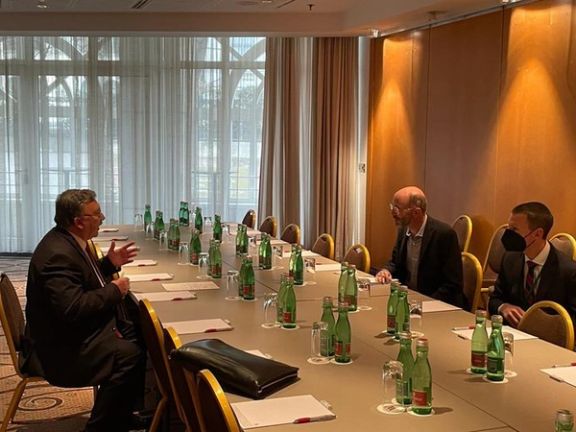
Price also admitted that Iran did not conduct honest negotiations. The “Iranian regime has not been true to its word when it said early on in this administration that it sought a mutual return to compliance with the JCPOA. It has consistently proven itself unable or unwilling to do so,” Price said.
“When it comes to Iran’s nuclear program, of course this is one of those core challenges. But I think when you look at where we are now as opposed to where we had been or where the previous administration had been, we are now united with our European allies,” Price said, highlighting the only area of success in two years.
Former President Donald Trump’s unilateral style in foreign policy had annoyed the Europeans, who often just tolerated his moves but were clearly unhappy. But the same cannot be said about US allies in the region, where both Israel and the block led by Saudi Arabia agreed with Trump’s policy of ‘maximum pressure’ against Tehran.
With the latest move by Saudi Arabia to re-establish diplomatic ties with Iran under Chinese guarantees, clearly shows regional allies are not sure about the Biden administration’s ability to handle Iran.
Secretary of State Antony Blinken speaking to reporters in Ethiopia Wednesday tried to put a positive spin on the development, saying, “anything that can help reduce tensions, avoid conflict, and curb in any way dangerous or destabilizing actions by Iran is a good thing… And to the extent that China facilitated conclusion of this agreement to restore diplomatic relations, that’s a good thing.”
This will be seen by many as an admission that China is able to provide security to Saudi Arabia while the United States has somehow left a void.
As China, Russia and Iran began naval drills in the region less than a week after the Chinese-brokered deal, one administration critic tweeted, “Wondering if we’ll hear from more anonymous US officials saying, ‘ultimately, this a good thing’.”
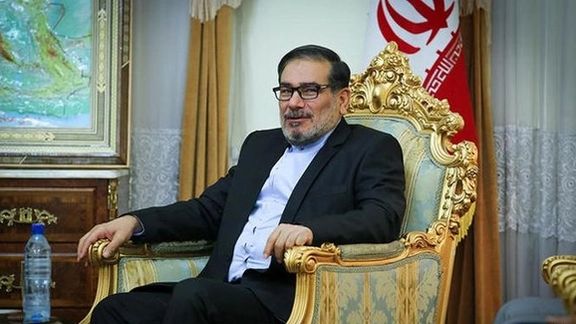
A high-level Iranian delegation to Abu Dhabi led by Ali Shamkhani from Iran's Supreme National Security Council (SNSC) hopes to mend ties with its Persian Gulf neighbour.
It is part of wider regional efforts from the regime to bridge tensions between Iran and its rivals, including Saudi Arabia, with whom it agreed to resume diplomatic relations last week.
The visit to the United Arab Emirates also shows the UAE leadership’s desire to take regional peace forward without the hands of the US.
In an unexpected move, the UAE resumed diplomatic relations and returned its ambassador to Iran just last year after ties soured following the storming of the Saudi embassy in Tehran in 2016.
Before the visit on Thursday, Shamkhani said the region will be strengthened by deepening local ties, though.
According to ISNA news agency, he is accompanied by the governor of the central bank and other high ranking intelligence and foreign ministry officials.
Crippled by biting sanctions and a revolution which has plunged Iran into the worst recession in decades, has forced the hardline Iranian leaders to mend ties with neighboring countries in the hope for the revival of the 2015 nuclear deal known as the JCPOA.

Iranian Nobel Peace Prize laureate Shirin Ebadi asked the European Parliament to support the women-led uprising in Iran during a special session on Wednesday.
Ebadi -- who was awarded the 2003 Nobel Peace Prize for her pioneering human rights efforts, especially for women, children, and refugees -- addressed MEPs, urging the EU to maintain pressure on the Iranian regime over human rights violations.
She called on MEPs not to turn their back on the protests in Iran, sparked by the death of 22-year-old Mahsa Amini, during which more than 550 people have been killed and more than 20,000 arrested so far. "Do not give in to this regime," she appealed to the parliament, insisting that "sanctions work" against the Islamic Republic’s authorities.
"Subordinate aid to Iran, contracts with Iran, and treaties with Iran to respect for international norms, otherwise the money will not benefit the Iranian people at all," said the activist, who now lives in exile.
Before the Iranian opposition figure took the floor European Parliament President Roberta Metsola, European Commission President Ursula von der Leyen, and astronaut Samantha Cristoforetti delivered speeches about empowering women, reiterating that the International Women's Day – which was celebrated globally on March 8, must be seen as an invitation for societies to do better.

“International Women’s Day is marked in our annual calendar not only to recognize the achievements of women and girls across the world but also as a call to action,” Metsola said. “A rallying point to strengthen gender equality across all spheres of our society.”
Paying homage to Ebadi, she said, “Your presence is a reminder that the fight will not cease, and that freedom requires courage and sacrifice... Women will not go silently into the night. They will not give up. And the European Parliament will continue to stand with the women of Iran.”
“Today I want to honor all those women who are fighting for their freedom and inclusion; women who are killed, beaten, and abused all over the world just for being women…All those women who face all this and remain unbowed and unbroken,” she added.
Commission President Ursula von der Leyen also praised all the courageous Iranian women fighting for their “freedom to show their hair or cover it, to study, work, to love without asking for anyone’s permission” and for inspiring women across the world.
Ebadi emphasized that Iranian protesters’ demand is regime change under the slogan “Woman, life, freedom,” and called on democracies not to remain indifferent to human rights violations in the country.
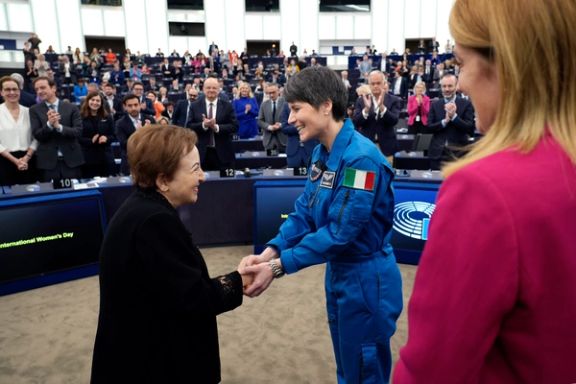
Describing the dire situation of imprisoned journalists, lawyers, artists, activists and young schoolgirls, she decried the absence of a functioning and independent justice system in Iran. "Don't look away from the immense violations of fundamental rights in Iran," she called on the MEPs.
Ebadi also urged the world to designate the Islamic Revolutionary Guard Corps – the IRGC – as a terrorist group. The 27-nation European bloc has so far stopped short of formally labelling the IRGC a terror group, despite calls to do so from Germany and the Netherlands as well as several rounds of rallies by Iranian diaspora communities to push for blacklisting the outfit. She categorically said, “the Revolutionary Guards is a terrorist group," and urged the UE to "say it officially."
Reassuring that Europe would benefit from a democratic Iran, she said if democracy is established in Iran, not only will the number of refugees fleeing from the region be reduced but also peace and calm will be brought back to the region. "Democracy is the key to Iran's future, it is the key to peace and stability in the whole region, and it is also in your interest," she argued. "If democracy comes to Iran, there will be fewer refugees in your country."
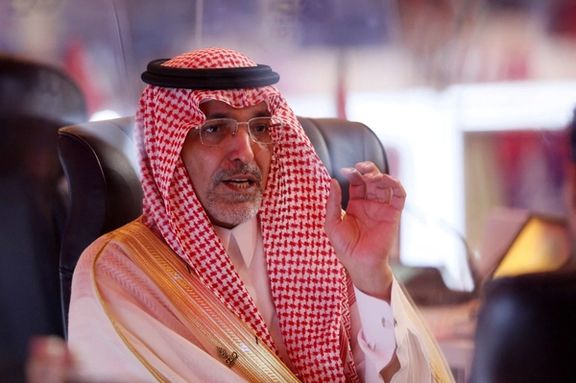
Saudi Arabia's Finance Minister Mohammed Al-Jadaan said Wednesday that Saudi investments into Iran could happen "very quickly" following an agreement to restore diplomatic ties.
"There are a lot of opportunities for Saudi investments in Iran. We don't see impediments as long as the terms of any agreement would be respected," Al-Jadaan said during the Financial Sector Conference in Riyadh.
Iran and Saudi Arabia agreed Friday to re-establish diplomatic relations after years of hostility that had threatened stability and security in the Gulf and helped fuel conflicts in the Middle East from Yemen to Syria.
"Stability in the region is very important, for the world and for the countries in the region, and we have always said that Iran is our neighbor and we have no interest to have a conflict with our neighbors, if they are willing to cooperate," Al-Jadaan later told Reuters in an interview.
Tehran and Riyadh agreed to re-open embassies within two months, according to a statement issued by Iran, Saudi Arabia and China, which brokered the deal.
"We have no reason not to invest in Iran, and we have no reason not to allow them to invest in Saudi Arabia. It is in our interest to make sure that both nations benefit from each others resources and competitive advantage," Al-Jadaan told Reuters.
"If they (Iran) are willing to go through this process, then we are more than willing to go through this process and show them they are welcome and we would be more than happy to participate in their development," he said.
He said there were a lot of opportunities in Iran and that Saudi Arabia also provided a lot of opportunities for Iran.
Report by Reuters